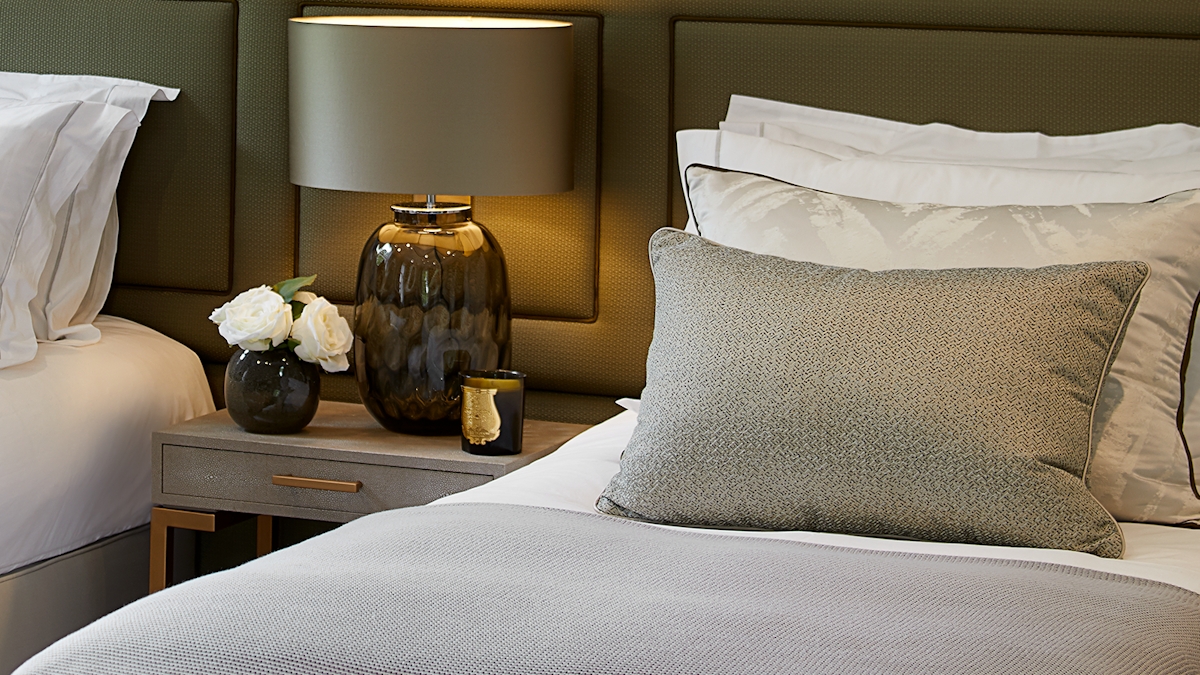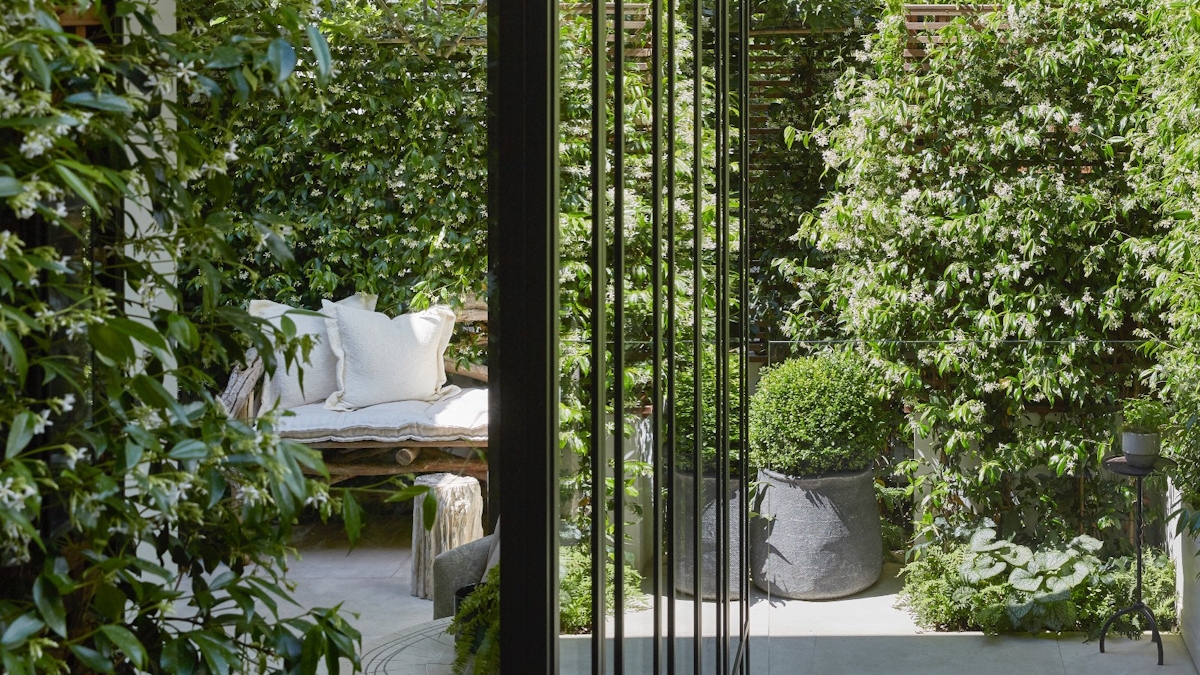If ever there was a room where the tenets of biophilic design—improved air quality, the benefits of natural lighting on our circadian rhythms and the joy of natural materials against the skin—were needed, the bedroom comes top of the list.

5 Tips For A Biophilic Bedroom
From improved air quality to the joy of natural materials against the skin, here are our tips for a biophilic bedroom.


Breathable Bed Linens
Nowhere else in the home are materials of such importance than in the bedroom. Wrapping us up in bed for (hopefully) 8 hours a night, bed linens should be prioritised for their material content before any style. Choose natural materials which breathe well and are moisture wicking such as linen. In doing so, your body will regulate its temperature much more effectively, meaning your sleep will be pleasant and comfortable throughout the night.
Purifying Plants
As true for indoor spaces as it is for outdoor spaces, better air quality improves our overall health, and in the bedroom it's especially important for a good night's sleep. Introduce purifying plants, trees or other vegetation which are known for their nighttime oxygen production or bacteria-removing properties. If you live in an area where outside air quality is satisfactory, you should also start the day by throwing open the windows to let the breeze in.
Modern Abstract Art
For as popular as modern abstract art is, in a biophilic-inspired bedroom, artwork should be calming and focused on nature in order to aid a relaxing night's sleep. Tranquil landscape or water scenes in appropriately serene colour palettes - greens, blues and neutrals - will make going to sleep and waking up as pleasurable as they should be.
Natural Light
Natural lighting is a key element of managing our internal body clock. That's because natural light is brighter and therefore better than artificial light at giving our bodies the cues they need to self-regulate. For your bedroom, choose the room in your home which offers the best natural light, and make the most of the natural light it has by selecting light-blocking window treatments. Use candlelight or dim lighting before bedtime to limit the impact of artificial light on your sleep quality.
Water Feature
For an extra-special night's sleep, consider installing a small water feature in your bedroom (or en suite bathroom) or playing natural sounds as you prepare for bed. There's no need to have it running throughout the night, but even a little touch of nature before bed can go a long way.
Header Image: Laura Hammett
